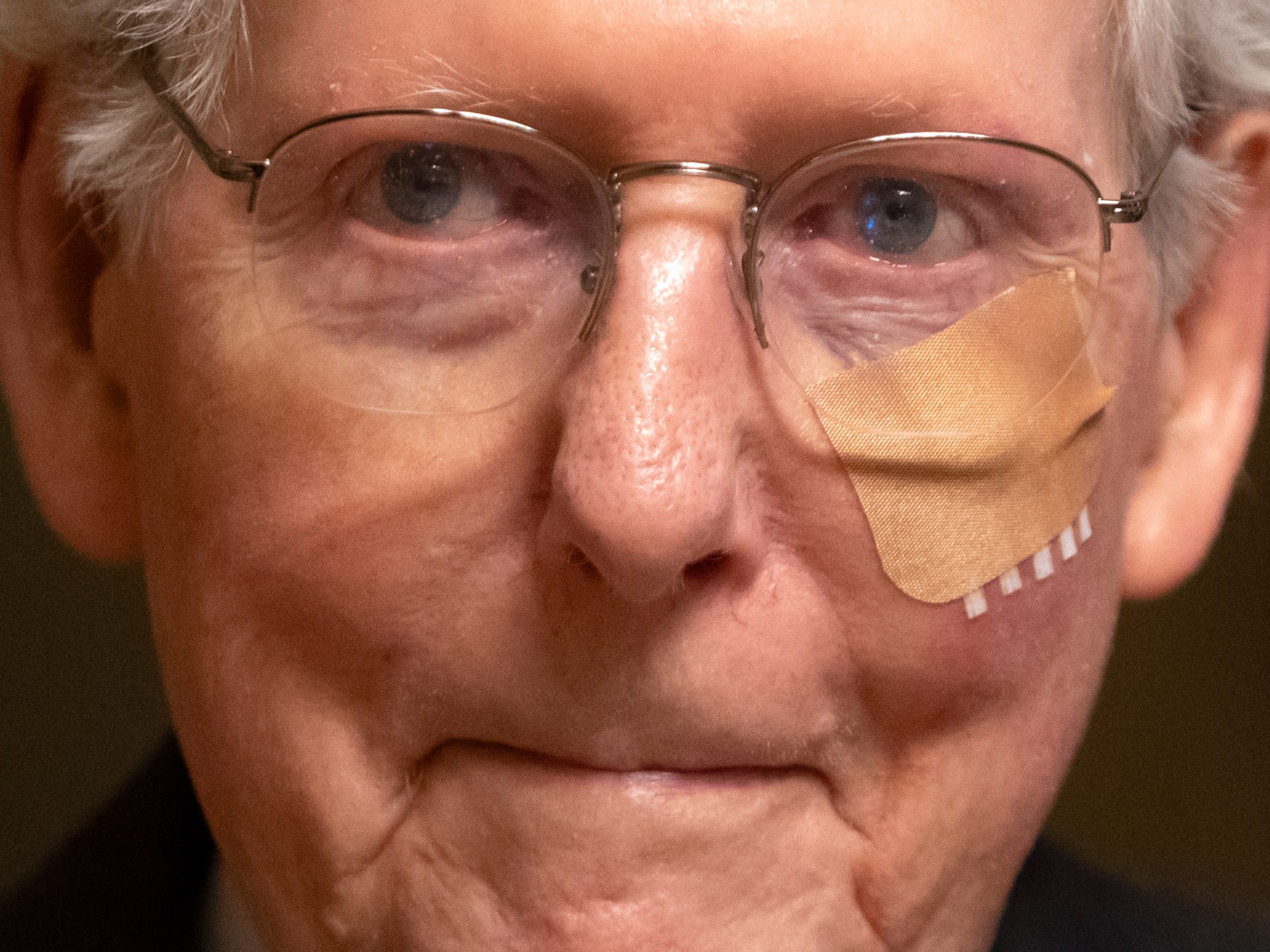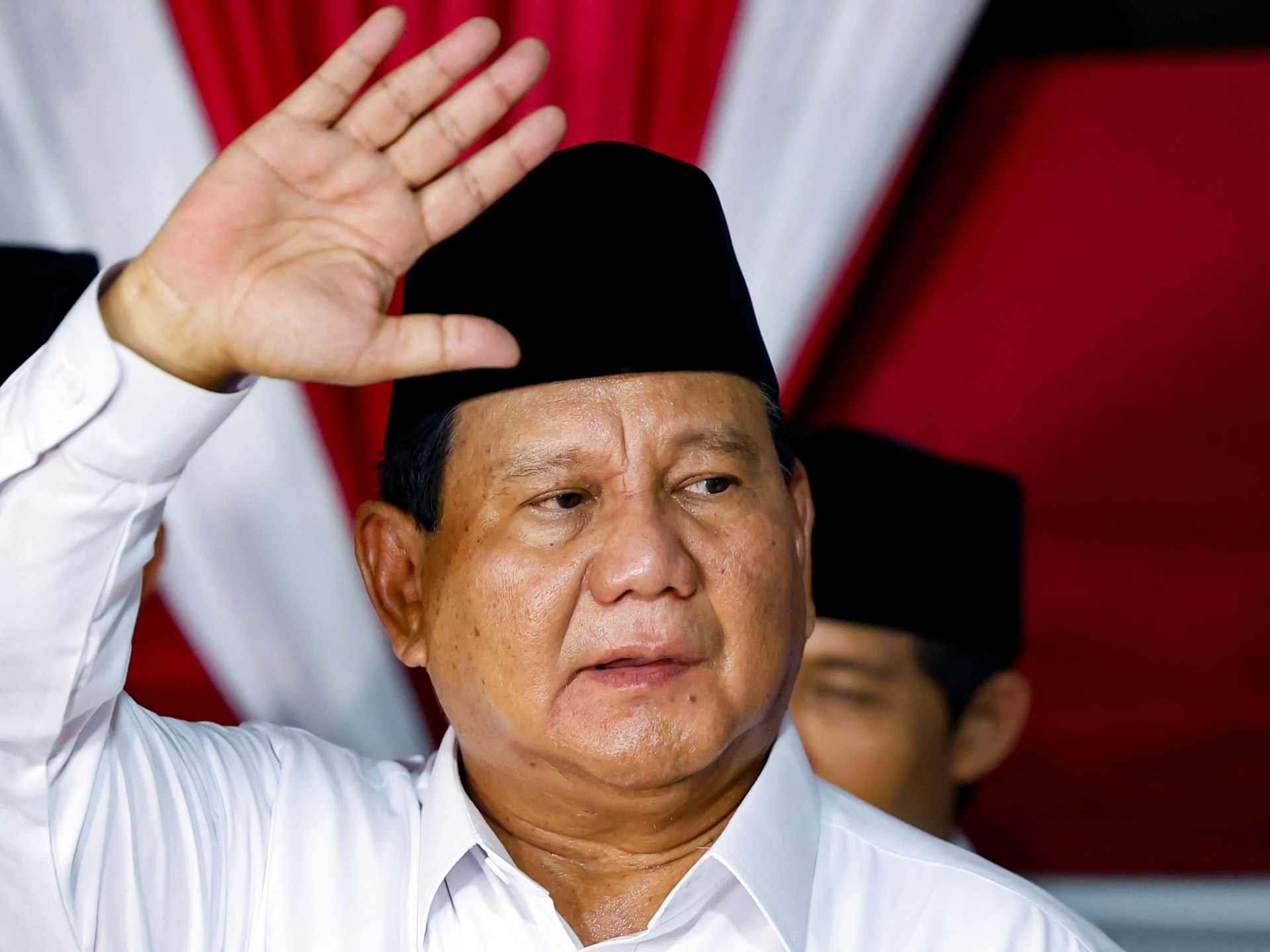

A new United States Congress convenes in Washington, DC, on January 3. But for the first time in 18 years, a key Republican leader will no longer be at the helm: Senator Mitch McConnell.
Since 2007, McConnell has served as head of the Republican Party in the Senate, steering members of his caucus through four different presidencies and countless legislative hurdles.
Experts say his tenure as the Senate’s longest-serving party leader will ultimately be remembered as an inflexion point for Republicans and Congress as a whole.
Under McConnell, US politics moved away from the back-slappers and consensus-builders of earlier eras. Instead, McConnell helped to usher in a period of norm-breaking, hyper-partisan politics that paved the way for figures like incoming President Donald Trump, the leader of the Make America Great Again (MAGA) movement.
“First and foremost, he extended a trend in minority obstruction in the Senate,” Steven S Smith, professor emeritus of political science at Washington University in St Louis, told Al Jazeera.
Advertisement
Smith pointed out that McConnell led a Republican majority for only six of his 18 years as Senate leader. The rest of his tenure has been spent mobilising a minority in the 100-seat Senate to disrupt the agenda of the rival Democratic Party.
“Second, he will be known for deepening partisan polarisation in the Senate,” Smith said. “While McConnell is not a conservative or MAGA extremist by today’s standards, he was a deeply partisan leader.”
Despite his commitment to the Republican Party, some see McConnell as a potential bulwark to figures like Trump, with whom he has clashed in the past.
Though he is stepping down as party leader, McConnell intends to remain in the Senate for the remainder of his six-year term. But the extent to which McConnell will act as a check on Trump’s ambitious second-term agenda remains to be seen.
“I’d be very surprised to see him be provocative in a public way. His influence is going underground,” Al Cross, a veteran reporter and columnist who covered McConnell’s tenure, told Al Jazeera.

‘I usually play the villain’
McConnell has led a long and storied career in the Senate. In 1984, he made his first bid for a seat in the chamber, ousting an incumbent Democrat.
He has remained undefeated ever since. In 2020, he won his seventh straight term.
His ascent to the top of the Senate came without significant opposition. The 2007 retirement of the previous Senate Republican leader, Bill Frist, left the position vacant.
Advertisement
But even from his first days as a Senate leader, McConnell cultivated a reputation as a hardliner and obstructionist.
During his first year as Republican leader, The New York Times described him as operating with “near-robotic efficiency” to smack down Democratic policies, despite leading a minority in the Senate.
“Mr McConnell and his fellow Republicans are playing such tight defense, blocking nearly every bill proposed by the slim Democratic majority that they are increasingly able to dictate what they want,” reporter David Herszenhorn wrote.
McConnell quickly embraced his visibility as a partisan warrior, a self-described “grim reaper” for progressive proposals.
One editorial column nicknamed him “Senator No” for his refusal to work across the aisle. McConnell himself greeted reporters once by saying, “Darth Vader has arrived.”
“Over the three decades I have been a US Senator, I’ve been the subject of many profiles,” McConnell wrote in the opening lines of his 2016 memoir. “I usually play the villain.”
Smith, the Washington University professor, described McConnell as sparking a “transformation” in the Senate as a result of his hardline approach.
Before McConnell’s leadership, Smith said the Senate only saw “occasional minority obstruction”. But afterwards, the chamber became known in political circles as the “60-vote Senate”.
That nickname is a reference to the 60 votes required to overcome a minority obstruction, otherwise known as a filibuster.
Under McConnell, Smith explained, “acting on legislation of any importance would face minority obstruction and require 60 votes for cloture”.

Bending norms
One of McConnell’s most divisive moments came in 2016, with the death of Supreme Court Justice Antonin Scalia.
Advertisement
Normally, when a justice dies, the sitting president is entitled to nominate a replacement. But Scalia’s death came 11 months before a pivotal presidential election. And the president at the time, Democrat Barack Obama, was nearing the end of his final term.
McConnell made a stunning — and swift — political gamble. Within hours of Scalia’s death, the Republican leader announced he would refuse to call a vote to confirm Obama’s chosen replacement.
“The American people should have a voice in the selection of their next Supreme Court Justice. Therefore, this vacancy should not be filled until we have a new president,” McConnell said in a statement.
Left-leaning publications like The Nation decried McConnell’s decision as an assault on the US Constitution. “This refusal exploded norms,” journalist Alec MacGillis wrote in the publication ProPublica.
But McConnell’s gambit shifted the balance of power on the court for generations to come.
That November, US voters elected Trump — a political newcomer — to his first term in the White House, setting the stage for more shifts in Washington norms.
Trump ultimately nominated three right-wing justices to the Supreme Court, including one to replace Scalia. That cemented a conservative super-majority on the bench, anticipated to mould US law for generations to come.
Trump later credited McConnell as his “ace in the hole” and “partner”.
“Mitch recognized, as did I, that since judges enjoy life tenure, the impact of judicial nominations can be felt for thirty years or more,” Trump wrote in a forward to McConnell’s memoir. “Transforming the federal judiciary is the ultimate long game!”

A Trump rivalry
But in the lead-up to a new and emboldened Trump administration in 2025, McConnell has increasingly spoken out against the president-elect and his isolationist “America First” platform.
Advertisement
The two Republican leaders have repeatedly butted heads, and their relationship is notably frosty.
Trump has openly called McConnell an “old crow” and vilified his “China-loving wife” Elaine Chao, a slap at her Asian heritage.
McConnell, meanwhile, has countered with his own fighting words, implying parallels between Trump and isolationism in the 1930s.
“We’re in a very, very dangerous world right now, reminiscent of before World War II,” McConnell told the Financial Times in December. “Even the slogan is the same. ‘America First.’ That was what they said in the ’30s.”
Upon vacating his leadership post in January, McConnell is expected to take on the role of chairman of the Senate Appropriations Subcommittee on Defense.
In his new position, he is likely to advocate for strengthening the US military to counter threats from adversaries like Russia, Iran and China.
Yet at age 82, with health challenges including a recent fall, experts say McConnell is unlikely to offer much resistance to the incoming Trump administration.
“Since Senator McConnell is out of his leadership position and given his physical frailty, I am not expecting much in the way of sustained opposition from him,” Harvard University political scientist Daniel Ziblatt told Al Jazeera.
“It is possible he may cast a dissenting vote here or there that might make a difference. But his track record doesn’t leave me holding my breath.”

No greater institutionalist
Still, Herbert Weisberg, a professor of political science at The Ohio State University, anticipates that McConnell may act as an occasional dissenting voice, particularly as the Senate weighs some of Trump’s controversial nominees for high-level government posts.
Advertisement
“He’d normally want to defer to a Republican president on appointees, but he’ll be cautious on the unusual Trump nominees. He might be willing to vote against a few, but not all of them,” Weisberg told Al Jazeera.
Already, McConnell — a childhood polio survivor — issued a public warning to incoming administration officials to “steer clear of” efforts “to undermine public confidence” in “proven cures”, lest they scuttle their Senate confirmation hearings.
The statement came immediately after Trump health nominee Robert F Kennedy Jr was linked to an effort to revoke approval for the polio vaccine in The New York Times.
But a single Republican is unlikely to stall a nomination or piece of legislation, as Steven Okun, an analyst on US politics, government and trade, pointed out.
Republicans hold a 53-person majority in the incoming Senate. And many in the party are firmly behind Trump’s leadership.
Assuming a united Democratic opposition, “four Republican senators would be needed to stop anything a future President Trump puts forth to the Senate,” Okun explained.
McConnell, Okun added, is unlikely to take on the role of dissenter — “only when Donald Trump pursues the most aggressive actions which would run counter to the US national interest”.
After all, party loyalty has been a key tenet of McConnell’s leadership. And experts like Cross, the journalist, believe McConnell won’t want to miss an opportunity to use the power of the Senate to shape presidential policy.
“I can’t think of any greater institutionalist than Mitch McConnell,” Cross said. “He loves the Senate, it’s what he’s aspired to. He doesn’t want to give up its role in advice and consent.”
Advertisement
Related News

North Koreans die in droves in Ukraine even as Russia unleashes firepower

Why is hypothermia killing Gaza’s children?

Indonesia’s Prabowo steers strategic middle path amid China, US rivalry


